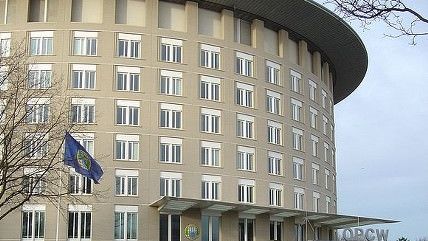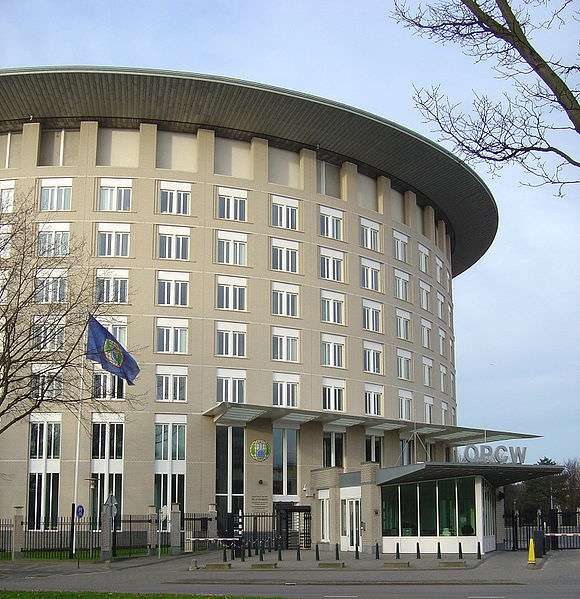Many Syrians Are Critical of the OPCW Winning the Nobel Peace Prize


While it is certainly the case that the Organization for the Prohibition of Chemical Weapons (OPCW) is a more worthy recipient of the Nobel Peace Prize than some other winners such as the European Union, President Barack Obama, and Al Gore, it remains the case that even if the OPCW is successful in overseeing the destruction of Syria's chemical weapons this process will have little to no effect on the brutality of the civil war in Syria or when the conflict will end.
Chemical weapons in Syria are responsible for a small fraction of the total number of casualties in Syria. Most of the people killed and wounded in the civil war have been killed or wounded by what are described as "conventional" weapons.
However, not only will the OPCW make little impact on the war in Syria, but the news that the OPCW had won the Nobel Peace Prize prompted some probably unintended reactions in Syria, with one member of Assad's ruling party telling the AP that the decision underscores the Assad regime's "credibility."
From the National Post:
Fayez Sayegh, a lawmaker and member of Assad's ruling Baath party, told the AP the award underscores "the credibility" of the Damascus government. He said Syria is "giving an example to countries that have chemical and nuclear weapons."
NPR has highlighted some of the reactions in Syria to the OPCW winning the Nobel Peace Prize:
"An award for what? They have only been two weeks in Syria and they already got the Nobel? It would have been more honest if (Russian President Vladimir) Putin got the award," said a sarcastic Kadar Sheikhmous, a Syrian activist who left the country and is now in Turkey.
"The award should have gone to the children killed in the August attack on Ghouta," he said in reference to the chemical weapons attack in a suburb of Damascus that left some 1,400 people, many of them children.
More from NPR:
Some Syrians cited the OPCW's short time in the country, though the Nobel committee noted the work the group has done elsewhere. Other Syrians felt the award failed to recognize the more than 100,000 Syrians who have been killed in more than two years of warfare.
Some even interpreted it as a present to President Bashar Assad for agreeing to give up chemical weapons — even though the opposition says it was his regime that used them to deadly effect.
Perhaps not the reaction The Norwegian Nobel Committee was expecting.
Editor's Note: As of February 29, 2024, commenting privileges on reason.com posts are limited to Reason Plus subscribers. Past commenters are grandfathered in for a temporary period. Subscribe here to preserve your ability to comment. Your Reason Plus subscription also gives you an ad-free version of reason.com, along with full access to the digital edition and archives of Reason magazine. We request that comments be civil and on-topic. We do not moderate or assume any responsibility for comments, which are owned by the readers who post them. Comments do not represent the views of reason.com or Reason Foundation. We reserve the right to delete any comment and ban commenters for any reason at any time. Comments may only be edited within 5 minutes of posting. Report abuses.
Please to post comments


My take is that they were giving a award to the idea of disarmament and OPCW was chosen as the symbol for that even though its has no real power and its actually the various nation states which make all the decision and do the work of destroying chemical weapons
Obama was the previous symbol and now the OPCW is the new one. Which is different from other Nobles which often waited decades to award in order to see if what is being awarded is real, in the Peace Prize iit s more and more an award for looking like peace not actually being peace
They're still more effective than other recent recipients.